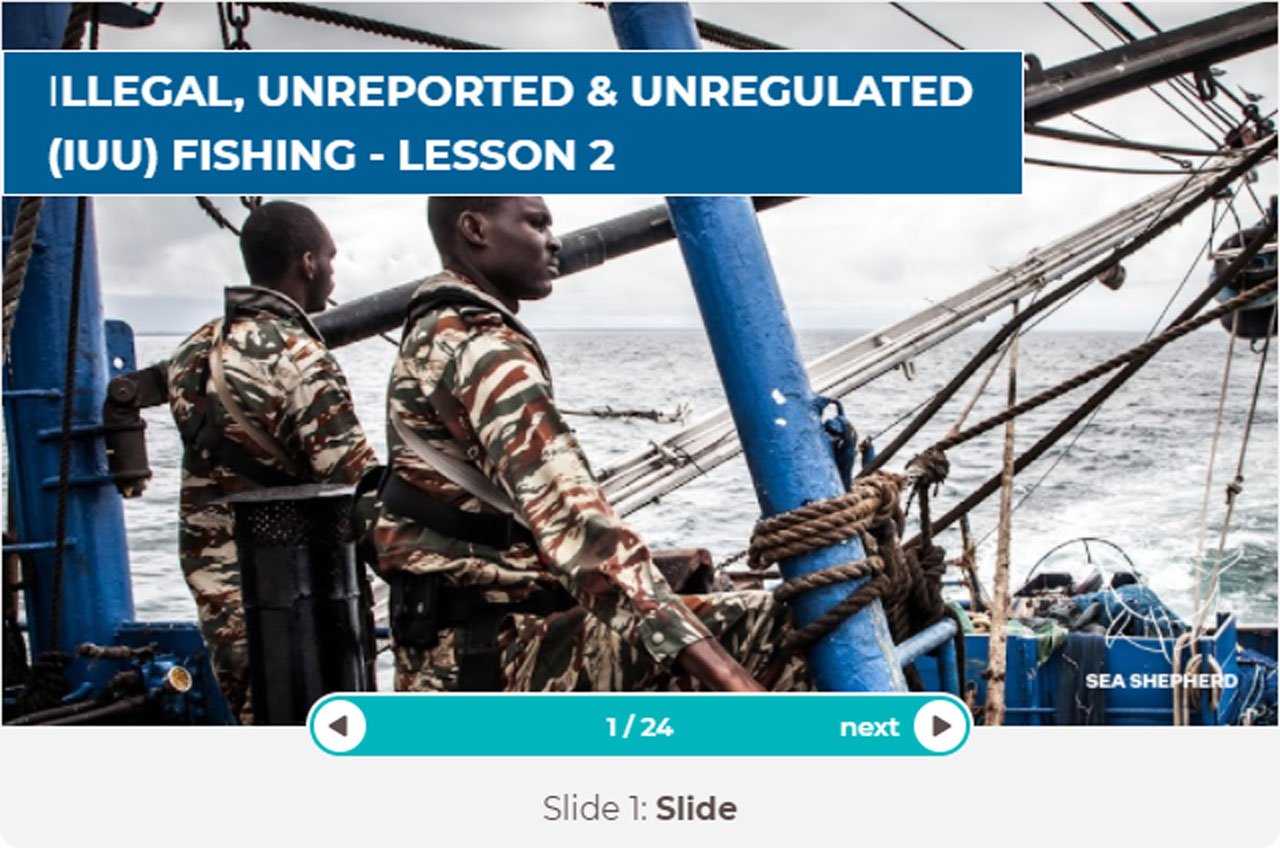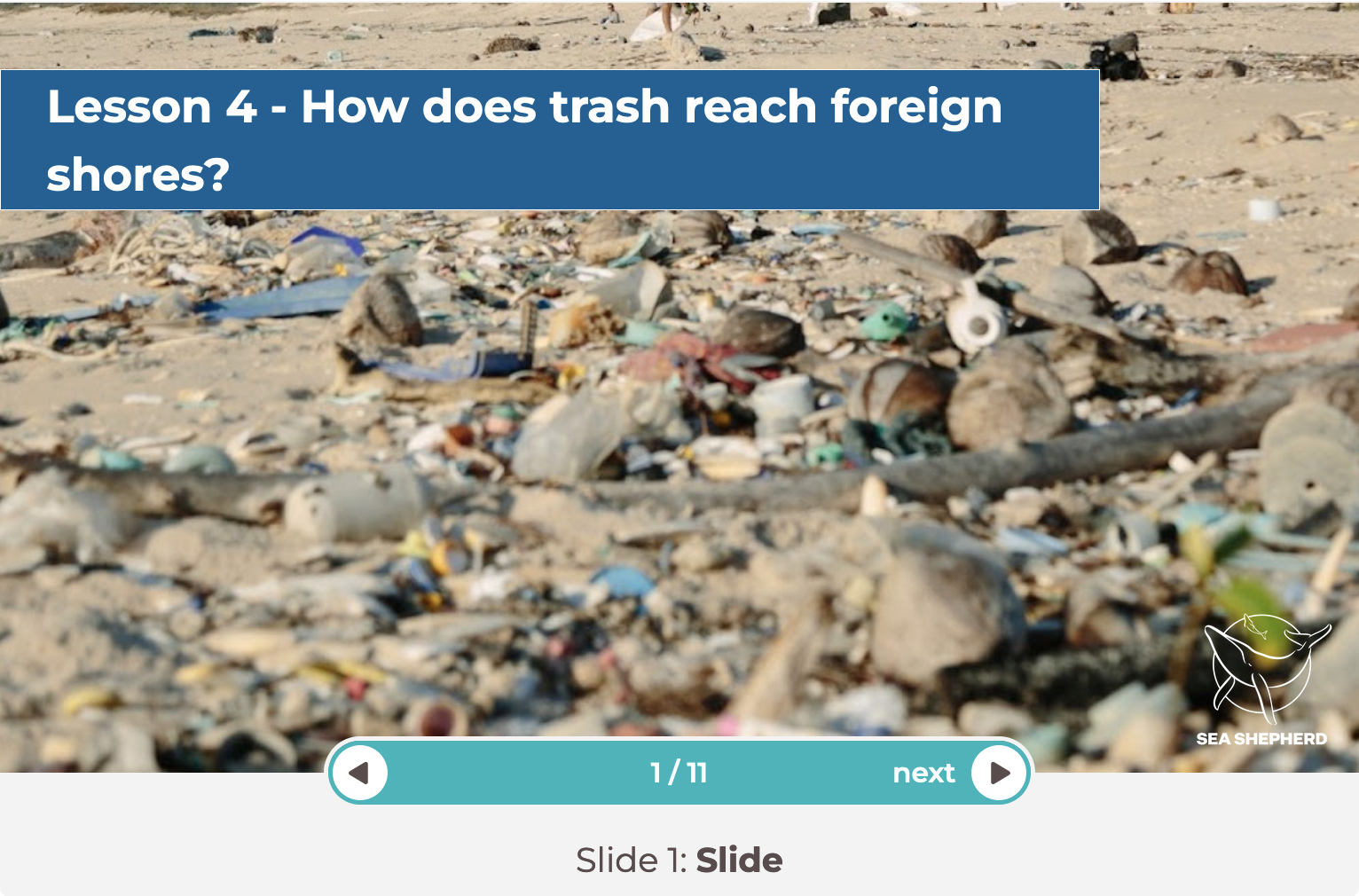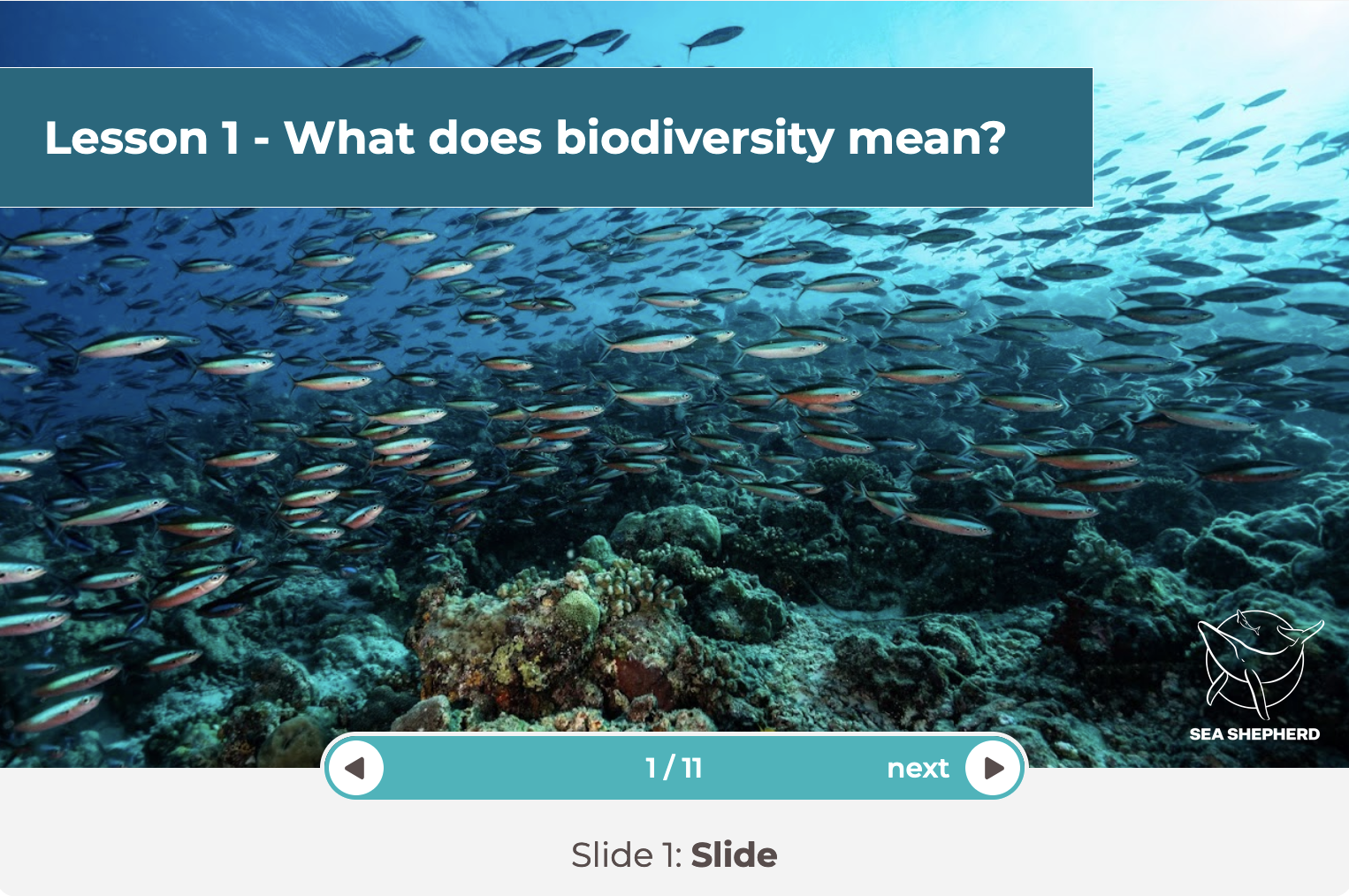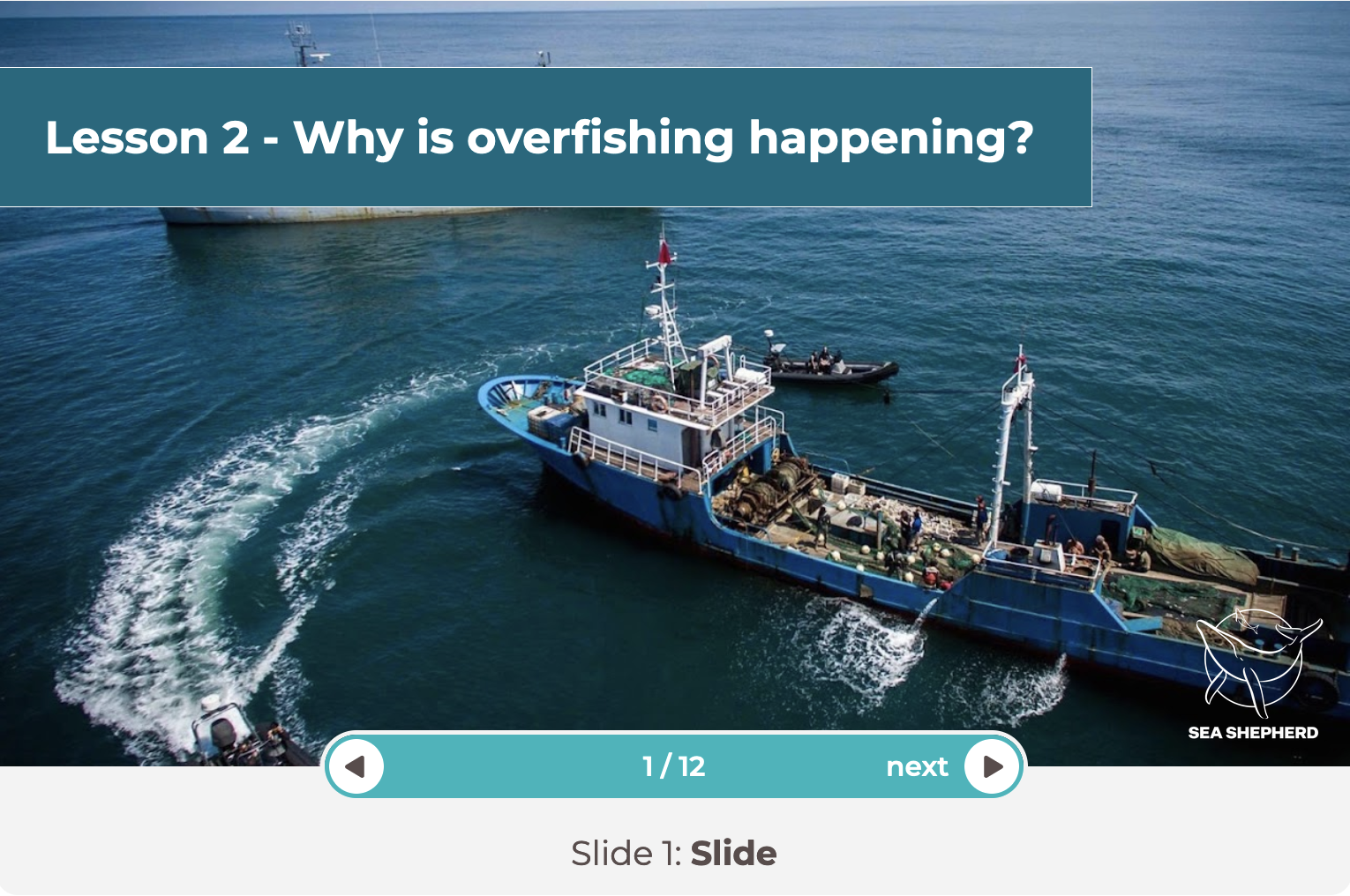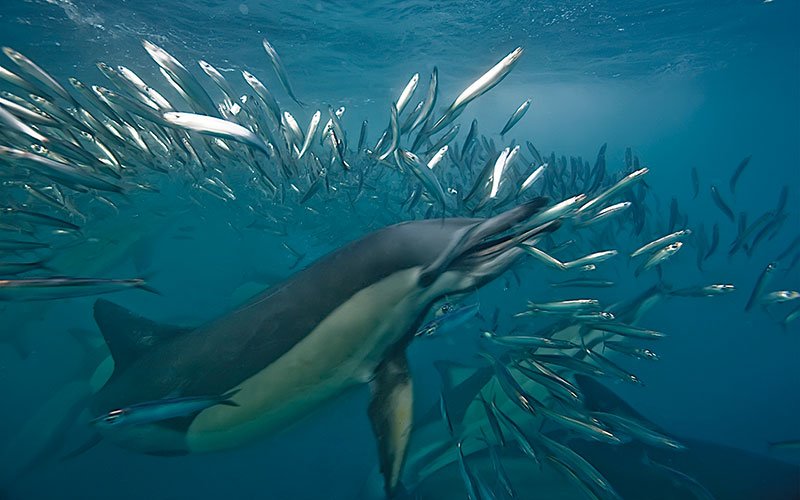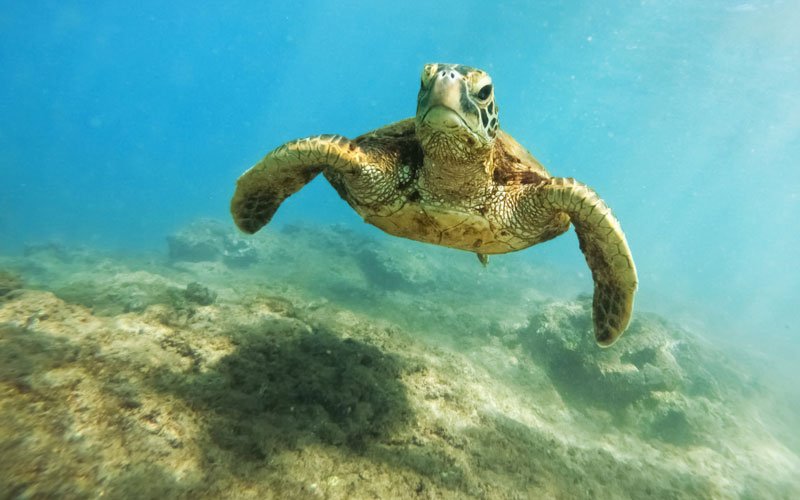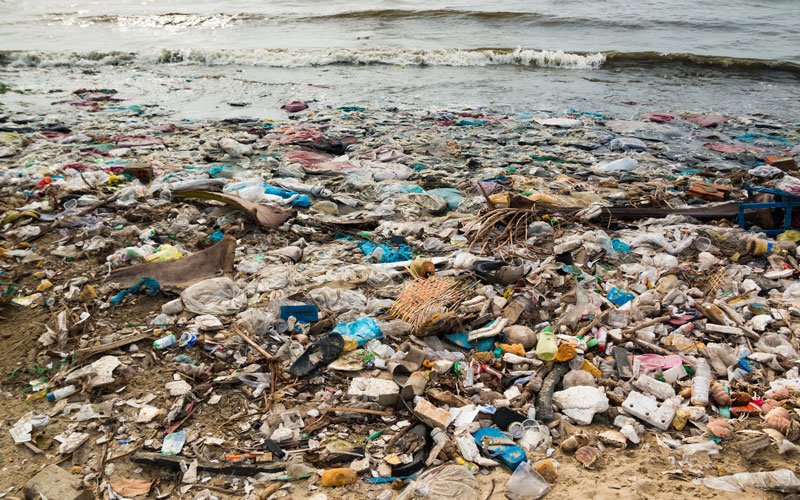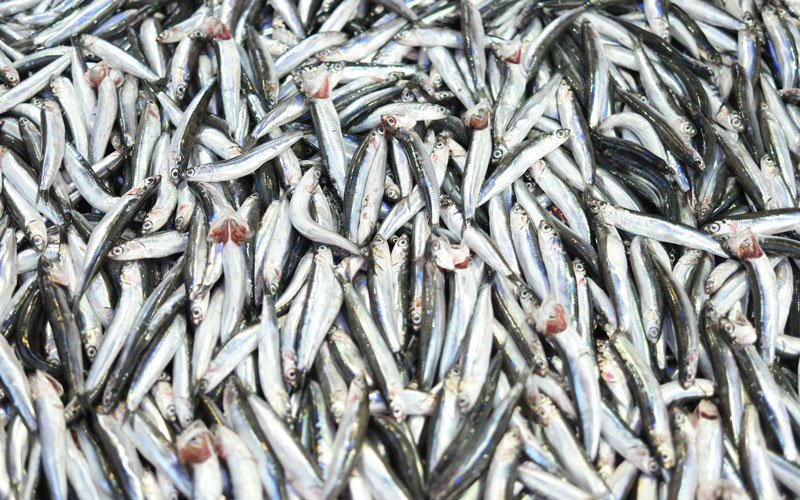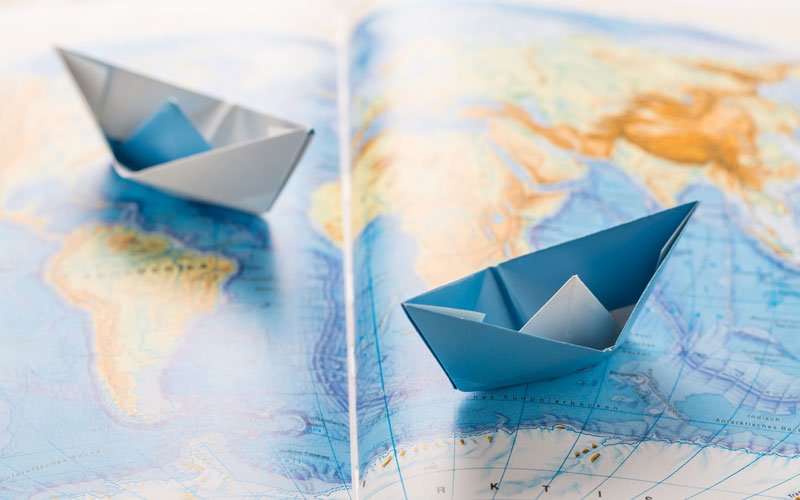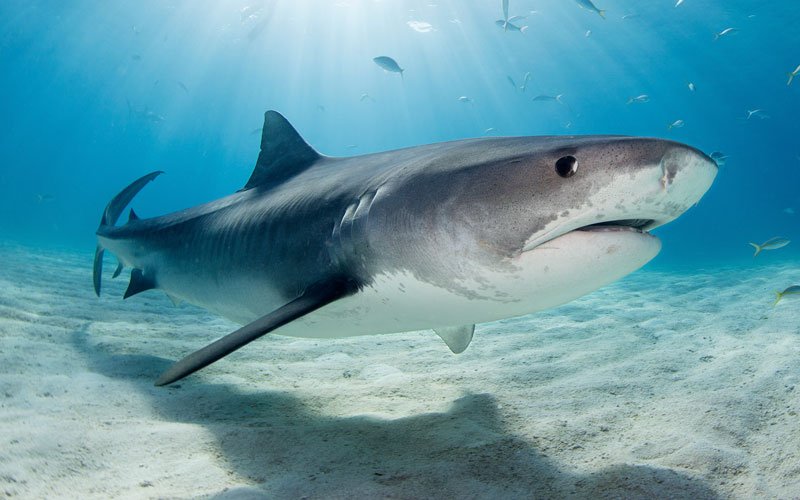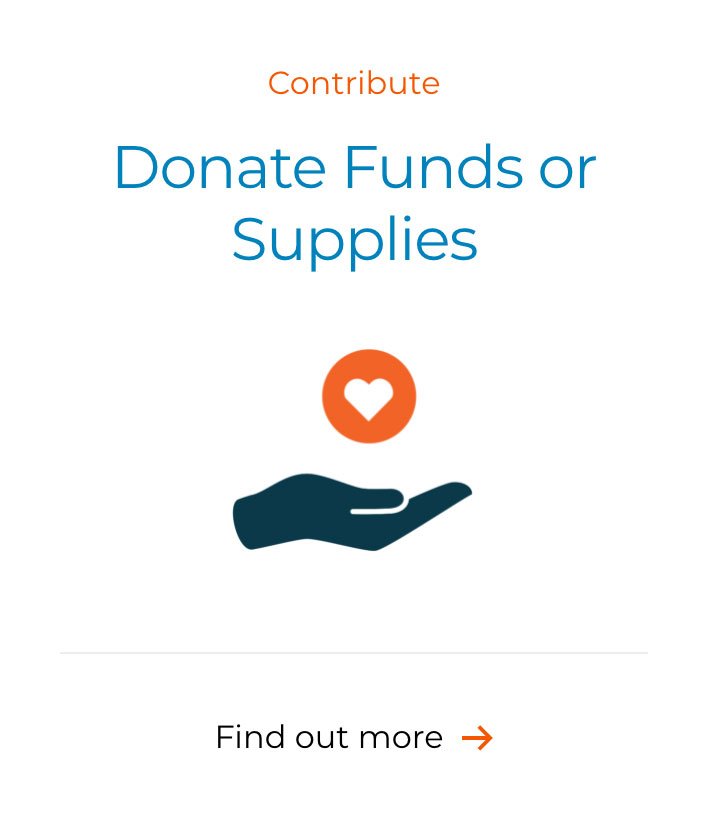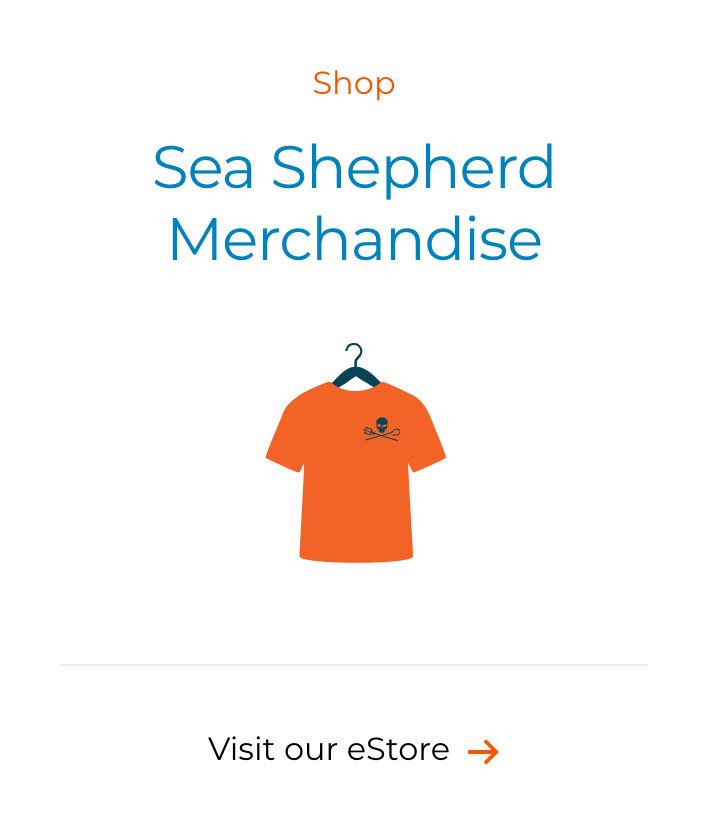Join Sea Shepherd in protecting the ocean
Sea Shepherd has been protecting the ocean and marine wildlife for over 40 years. Our ships travel the world to tackle marine conservation issues, crewed mainly by volunteers.
Our volunteers come from over 40 countries, they are everyday people who want to help save the ocean and marine wildlife.
You too can help Sea Shepherd in the fight – For the Ocean.
Start by learning about Sea Shepherd and the many issues we have been tackling since 1977.
Sea Shepherd Online Learning
Visit Sea Shepherd Education’s online learning platform to learn more about marine conservation issues, from illegal fishing to ocean pollution. Sea Shepherd Case Studies provide summaries of our campaigns and the issues they are tackling.
These materials also provide a range of free teaching materials and activities you can share with your teachers.
Students and schools, or home schooling groups can access the platform for free here:
Here are some lessons you might like:
Learning Activities
Do you want to learn more? Here are some activities that might interest you.
Select one of these topics and download the activity sheet.
How you can help protect the ocean
Conservation is not about standing by admiring others for what they do, it’s about every one of us making better choices and decisions every day; making a difference for the environment, for other species and for the health of our ocean and planet.
Marine conservation is about being part of a movement to create change for the better. That is why Sea Shepherd invites you to join us in making a difference. Together we can globally defend, conserve and protect the ocean and marine wildlife.
While we would love to see more people joining our ships crews, helping to tackle illegal fishing operations, hauling in illegal fishing gear, or becoming an onshore volunteer helping to raise awareness and funds to keep our ships at sea, we know this is not for everyone.
Just as important is supporting the ocean every day, by simply making better choices in your daily life and advocating for positive long-term change.
There are many ways you can join the Sea Shepherd movement by making a difference:
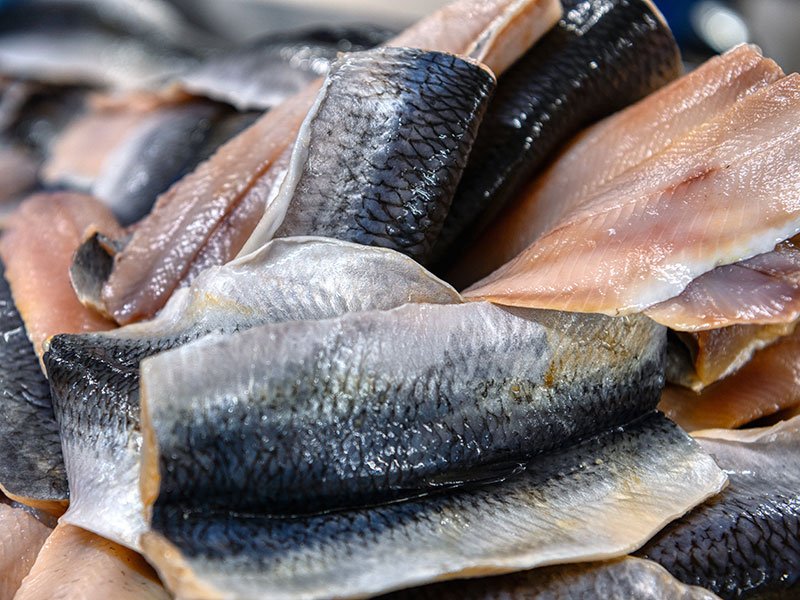
Reduce demand for fish
By reducing the consumption of fish, we can help tackle the impact of overfishing and illegal fishing activity.
Overfishing and illegal fishing operations are stripping the oceans, with some fish populations disappearing. The demand for cheap fish encourages these operations to continue, by helping to lower the consumption of marine wildlife we can reduce demand and make it less profitable for them to continue.
Remember farmed fish is still fed ocean caught fish, including krill, thus still making this a choice that harms the ocean.
Don’t support products like krill oil supplements – krill is being fished from the mouths of whales in Antarctica. These populations are already reducing due to climate change, overfishing of krill is the next major threat that whales and other species face in the Southern Ocean. Whales are also killed in the nets of krill trawlers or hit by these ships as they plough through pods of whales stealing krill. The large fishing companies only care about one thing, to profit from the ocean in the most ‘effective’ way.
To learn more, have a look at these lessons: IUU Fishing lessons 1-4, IUU and the law, Human Impacts on the Ocean, Overfishing the Ocean, Global Citizen or Extinction of Species.
Actions:
Check the source of any marine life you eat – could it have come from illegal sources, is it a species that is endangered or being overfished?
Reduce the amount of marine life you eat, or even better, stop eating it altogether!
Check what you are feeding your pets – is there a better option than fish. Non human consumption to feed both domestic and farmed animals, is a huge market.
Check any health supplements you take – Omega 3 pills using fish or krill oil are not the best option as fish obtain their omega 3 from the algae and plant life they eat, they don’t produce it.
Help advocate for an end to the sale of products that are damaging the ocean. Let’s choose marine life over commercial profit.

Plastics
Reduce the use of single use plastics and help recover trash from the ocean. Over 12 million tonnes of plastic end up in the ocean each year.
The ocean is filled with plastics, including dumped fishing gear, single use plastics and microfibers from plastic based clothing that go down the drain every time you wash them. Reducing our use of plastics, whether this be single use plastics, fast fashion or everyday items, does help but we need to do more.
To learn more, have a look at these lessons: Polluting the Ocean; Abandoned, lost and discarded fishing gear, What pollution is impacting the Ocean, or Human Impacts on the Ocean.
Actions:
Find alternatives for single use plastics.
Choose clothing that will last instead of fast fashion and plastic based fabrics.
Learn to repair and repurpose plastic items, if you can’t, make sure you recycle.
Join or create your own clean ups to remove plastics and debris from rivers, beaches and the ocean.
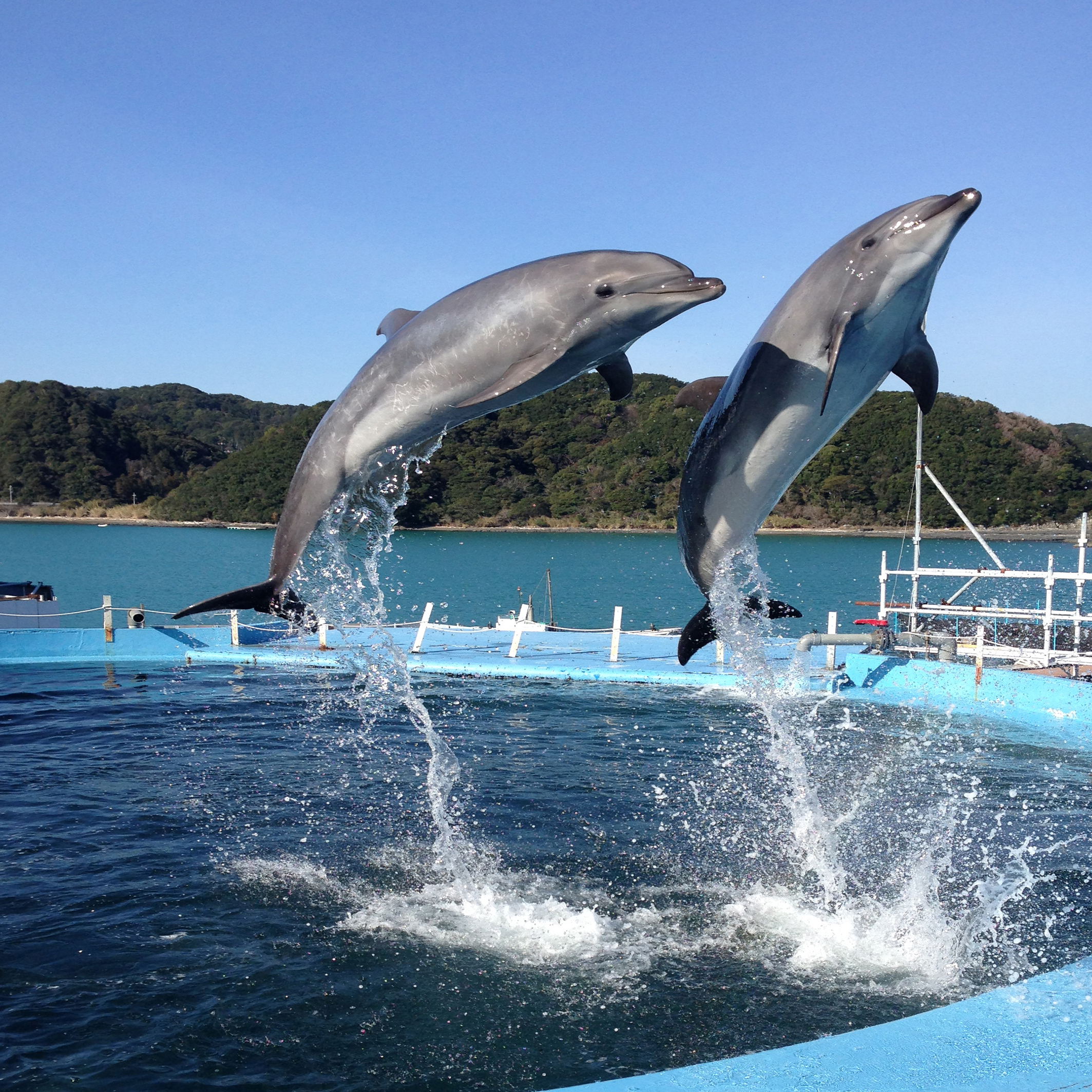
Captivity is misery
After all these years people still believe that the captivity of marine animals for entertainment is acceptable. That it is educational to keep dolphins, orcas, seals and many other species confined in small pools and train them to perform unnatural behaviour.
These animals suffer every day. They are kept in unnatural environments, deprived of any of their natural enrichments and fed by trainers that demand they perform for their food. All for public entertainment and commercial profit.
To learn more, have a look at these lessons Dolphin Captivity or Dolphins.
Actions
Refuse to support this cruelty and don’t visit facilities that keep marine wildlife.
Advocate for an end to captivity and the closure of these facilities.
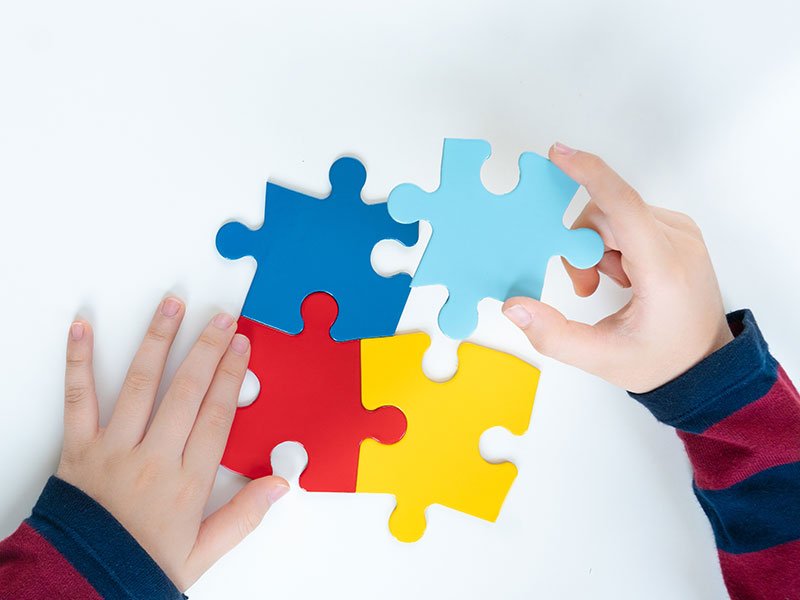
Help create solutions
Tackling the issues of overfishing, abandoned fishing gear and single use plastics requires new ways of thinking and behaving. What ideas do you have?
There are many issues impacting the ocean and while scientists and conservation groups work to tackle the issues and find solutions, there is still more that can be done. Can you help create new innovations and ways to help protect the ocean ecosystem?
How would you solve issues like:
Abandoned and lost fishing gear (Ghostnets) – How can we track and locate commercial fishing nets, so they don’t become deathtraps?
Microplastics in the ocean – how could we clean the ocean of plastic?
How do we stop clothes shedding microplastics? How do we stop fibres going down the drain when we wash clothes? Can we produce clothing that doesn’t shed fibres?
Plastic packaging – how do reduce what ends up in the ocean, or how do we encourage people to care more about the waste they produce and where it goes?
To learn more about the issues, have a look at these lessons: IUU Fishing lessons 1-4, IUU and the law, Human Impacts on the Ocean, Overfishing the Ocean, Global Citizen, Extinction of Species. Polluting the Ocean, Abandoned, lost and discarded fishing gear, or What pollution is impacting the Ocean

Raise awareness
Help spread the message. The more people know and understand the issues threatening the ocean, the more people can help create a change for the future.
One way to help Sea Shepherd protect marine wildlife is to become an advocate for the ocean and help raise awareness and lobby for change.
Whether it be in your local community, school, region or country, there are ways to raise awareness of these issues. Create your own campaign for change using social media, local news, petitions for changes to laws, letters to businesses or lobby local politicians.
Start by identifying the issue that you are concerned about – better protection for local beaches and marine life, more bins for rubbish, ban single use plastic products, stop the sale of krill oil, or encourage people to reduce fish consumption.
Research the issue and how it is impacting your local waterways / ocean / marine life or contributing to bigger issues like overfishing, plastic pollution or climate change. Check your facts carefully and document what is happening.
Prepare the message you want to share with everyone, outlining the issue, the cause, the impacts it is having and what could be done to make a difference.
Create the materials you need to support your action – infographics, posters, flyers, videos, petitions or letters.
If you are not sure how to do this, then you may ask friends to come on board to help you, or you can look for a local group that you can join.
The more people that become aware of the issues the ocean is facing, the more chance we have of making a difference and encouraging change.



